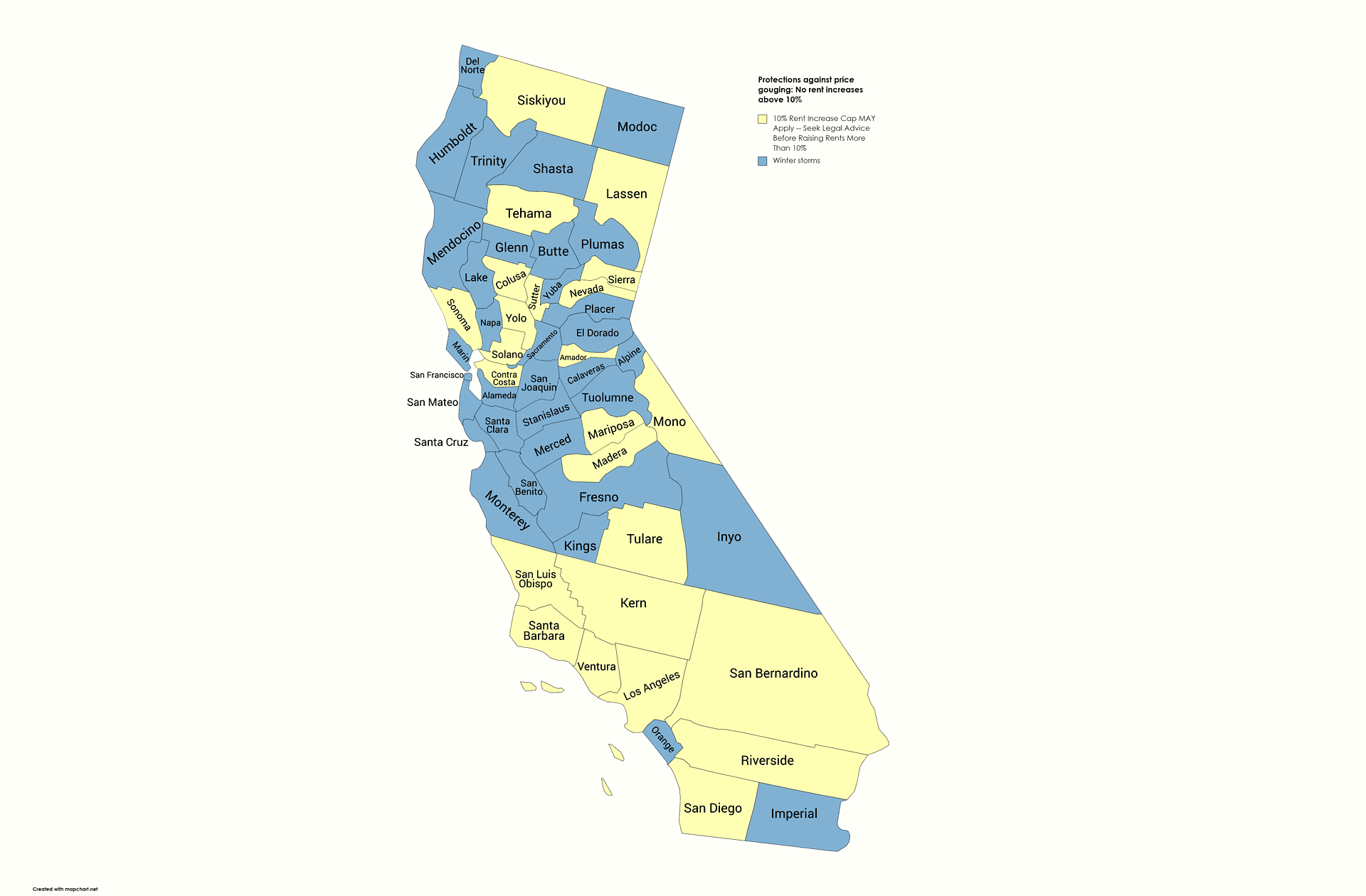Although a statewide heatwave emergency and some old fire emergencies expired at the end of September, about a dozen other emergency declarations remain in effect and continue to limit rent increases under the California’s anti-price-gouging law.
Emergency proclamations from the governor’s office trigger Penal Code Section 396, which makes it illegal to increase the price of many consumer goods and services, including that of rental housing, by more than 10% above pre-emergency levels. The anti-price-gouging protections apply to existing tenants and to rent increases at unit turnover.
Anyone convicted of violating the statewide anti-price-gouging law can face a year in county jail, a fine of up to $10,000, or both, as well as civil penalties. Local ordinances may impose additional penalties. Owners suspected of violating Penal Code Section 396 may also wind up in court.
Although emergencies are automatically set to lapse after one month, the proclamations often are extended multiple times by the governor or local officials. Be sure to keep tabs on the status of emergencies in your area by checking CAA’s emergency declaration chart. Note, this chart includes emergency declarations from the governor’s office that have activated the anti-price-gouging statute but not locally declared emergencies that may also have activated Penal Code Section 396.
The statewide restriction on rent increases due to the heat wave emergency declared on Aug. 31 lapsed as of Sept. 30, as did old fire-related states of emergency in Butte, Plumas and El Dorado counties. El Dorado County, though, will remain under a state of emergency because of a new wildfire declaration from last month. As with El Dorado County, Placer and Riverside counties have fire emergencies set to expire Oct. 8. A fire emergency in Madera, Modoc and Siskiyou counties is scheduled to end Oct. 19
Even if Riverside County’s fire emergency expires as scheduled Oct. 8, price gouging restrictions will remain in effect for at least another week. Riverside — along with Imperial, Inyo and Los Angeles counties — are under a tropical storm emergency set to conclude Oct. 16.
Keep in mind that even if a county doesn’t have an emergency declared by the governor, it may be subject to a local emergency declaration issued by a city or county, which can also trigger the limitations of the anti-price-gouging statute. Be sure to check with your city or county for information on any locally issued emergency declarations.
Enforcement of the state’s price-gouging ban does not stop at the county line. California’s attorney general has interpreted the price-gouging law to apply anywhere in the state with an increased consumer demand resulting from the emergency.


